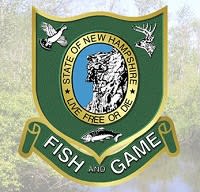Spring Season Looks Good for New Hampshire Turkey Hunters
OutdoorHub 04.24.14

In spite of the record number of zero degree days during the winter of 2014, New Hampshire’s wild turkey flocks seem to be “happy campers,” according to N.H. Fish and Game Turkey Biologist Ted Walski. That bodes well for hunters planning for the spring gobbler season, which opens Saturday, May 3, and runs through Saturday, May 31, statewide. New Hampshire’s Youth Turkey Hunt Weekend occurs the weekend before the season opens, this year taking place on April 26-27.
Last year (2013), New Hampshire hunters took a total of 4,550 turkeys during the spring season (of these, 590 were taken during the youth weekend). Another 855 turkeys were taken in the fall (542 during the five-day shotgun season and 313 during the three-month fall archery season).
“I would expect the 2014 season harvest to be as good or greater,” said Walski.
Walski recommends that hunters do some pre-season scouting by driving early morning “gobbling routes.” Start about a half-hour before daybreak. Stop at one-half to one-mile intervals along a 5- to 10-mile route in the region you intend to hunt; get out of the vehicle and listen for gobbling turkeys for four minutes at each stop. You’ll probably hear drumming grouse, as well.
Hunters are being asked to report any observations of avian pox on turkeys to Fish and Game at theodore.walski@wildlife.nh.gov or call a Fish and Game regional office or the Wildlife Division at 603-271-2461. The avian pox virus, which is not harmful or transferable to humans, is characterized by wart-like growths on the head and upper neck area of the bird. This is the third year that Fish and Game has monitored for the virus in New Hampshire. “I remain guardedly optimistic, because there are numerous turkey flocks, many of which are pox-free; in flocks that are affected, only one or two birds in the flock seem to have the pox lesions,” said Walski. He noted that during the 2014 Internet Winter Flock Survey, wild turkeys were observed with pox lesions in 26 sites in 18 towns, out of a total of 1,400 observations logged. To learn more about avian pox, visit http://www.wildnh.com/Wildlife/turkeyvirus.html.
A New Hampshire turkey license is required for hunters of all ages ($16 for state residents and $31 for nonresidents). This license allows the taking of one gobbler during the spring season (May 3-31, 2014) and one turkey of either sex during the fall archery season (September 15 – December 15, 2014) OR during the fall shotgun season (October 13-17, 2014). Hunters age 16 and older must hold either a current New Hampshire hunting or archery license AND a turkey permit. Licenses are available online at http://www.huntnh.com or from any license agent.
Fish and Game officials anticipate continued interest in New Hampshire’s apprentice hunting license, which allows those 16 and older interested in trying hunting to do so under the guidance of an experienced hunter without first taking Hunter Education. Learn more at http://www.huntnh.com/Hunting/apprentice.html.
All hunters should keep in mind key safety guidelines for turkey hunting:
- Always positively identify your target.
- Never assume that calls and movement indicate the presence of a turkey — hunters commonly imitate turkey calls and use decoys in order to locate and/or attract turkeys.
- Never stalk a turkey; you could be mistaken for game — rather than stalking, scout out a good spot, call and wait for the turkeys to come to you.
- Be seen! Turkey hunters should always wear a blaze orange hat or vest as they enter and leave the area they are hunting. Tie blaze-orange survey tape around a decoy/calling location to alert other hunters to your presence; it won’t scare the birds.
- Avoid clothes with the colors red, white and blue and black, as these are the colors of the male turkey.
For more information on turkey hunting in New Hampshire, including a list of registration stations and a 3-minute online video, visit http://www.huntnh.com/Hunting/Hunt_species/hunt_turkey.htm.

